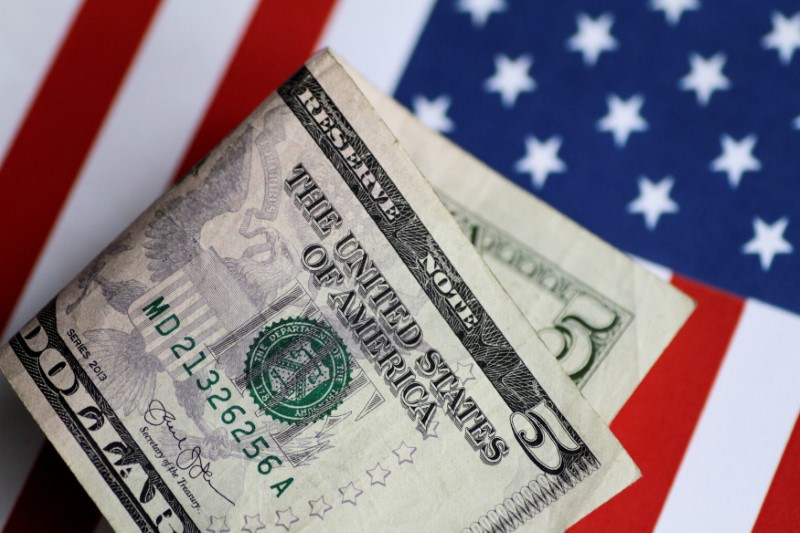By Dion Rabouin
NEW YORK (Reuters) - The dollar fell to its lowest since the day after the U.S. election against a basket of major currencies following the release of weaker-than-expected U.S. CPI and retail sales data on Wednesday.
U.S. retail sales in May recorded their biggest drop in 16 months and consumer prices unexpectedly fell month over month, suggesting inflation pressures are moderating, which could impact further Federal Reserve interest rate increases this year.
The euro
Against the yen, the greenback fell by more than 1 percent following the data release to touch 108.95 yen, its lowest since April 21
"The numbers cast serious, serious doubt on whether there will be another hike this year," said Greg Anderson, global head of foreign exchange strategy at BMO Capital Markets in New York.
The dollar index (DXY) was last down 0.6 percent at 96.437, after earlier touching its lowest since Nov. 9 at 96.323.
Investors were still expecting the Federal Open Markets Committee to increase U.S. overnight interest rates later on Wednesday at the conclusion of its June policy meeting.
Fed funds futures prices showed traders saw a more than 95 percent chance of a rates rise to between 1.00 and 1.25 percent.
The likelihood of a rate hike in September has significantly weakened, however, with futures rates showing just a 17 percent chance of an increase, down from 28 percent before the data release on Wednesday, according to CME Group's FedWatch.
"It won't stop the Fed from hiking interest rates later today, but it increases the downside risks to our forecast that there will be a further two rate hikes in the second half of this year," said Paul Ashworth, chief U.S. economist at Capital Economics in Toronto.
The Australian dollar
The Canadian dollar rose 0.45 percent, hitting its highest against the U.S. dollar since Feb. 27. The loonie was on pace for its best week since January 2016, up 2.5 percent since Friday.
Worries about global growth and weakness in markets for the commodities they produce has weighed on commodity-linked currencies like the Aussie, kiwi and loonie.

But after comments by Bank of Canada Deputy Governor Carolyn Wilkins on Monday flipped markets toward an earlier rise in borrowing rates there, traders and analysts said short bets against commodity-linked currencies looked exposed.